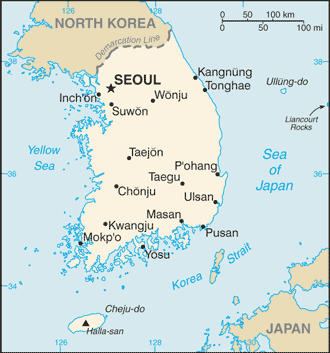No longer contented with the haphazard escalation of rhetoric that has brought the Korean Peninsula to the brink of all-out war, the Obama Administration has announced a formal system of tit-for-tat retaliation that they have tellingly dubbed “counterprovocation.”
 In essence, counterprovocation calls for the US to launch immediate but “proportional” attacks against North Korea in retaliation for incidents, using roughly similar weapons and hitting roughly similar targets.
In essence, counterprovocation calls for the US to launch immediate but “proportional” attacks against North Korea in retaliation for incidents, using roughly similar weapons and hitting roughly similar targets.
While tit-for-tat shellings and tit-for-tat missile strikes seem to be the definition of a system designed to see incidents escalate into all-out warfare, US officials are presenting it as an alternative designed to prevent war, figuring that if they strike North Korean targets in a similar enough manner everyone will just stop and marvel at the proportionality.
Without having even started, the program already has obvious holes, not the least of which is South Korea, whose government is seeing this whole thing as permission to attack the North in response to any provocation so long as they can argue that it is roughly proportional. They are also saying they want to attack the “command and control” centers responsible for any provocations on top of this. Officials concede that “overreaction by South Korea is a real risk.”
And really, how much proportionality can there ever be in a shooting war, with both sides seeing their own territory as inherently more valuable and their own lives as more precious than the enemy’s, and inevitably trying to make the opponent pay a similar price with a dramatically larger hit? Far from a real effort to avoid war, the plan seems to formalize the system by which the US will get sucked rapidly into one, should shooting begin.
Pentagon officials are set for this to get out of control quickly, and the top US commander is ditching a planned testimony to the US Congress in favor of staying close in case the war breaks out.


